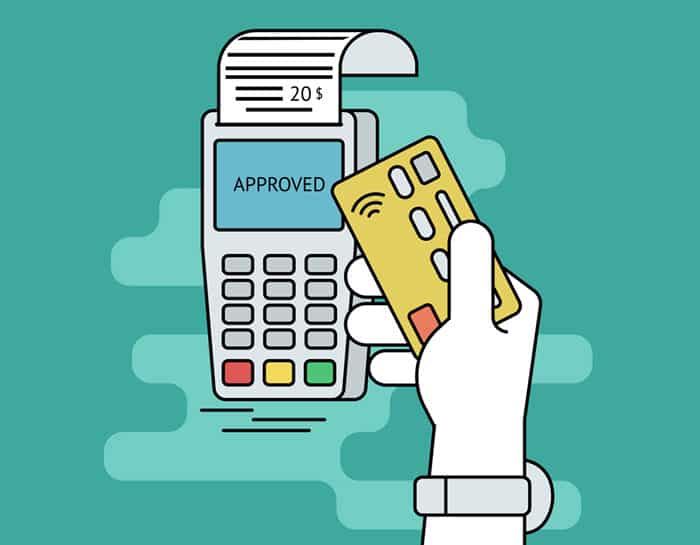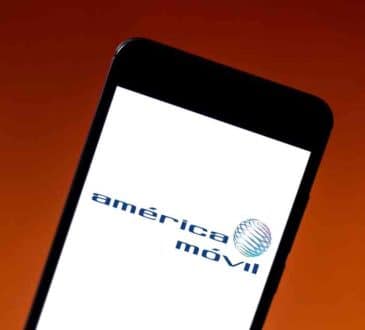What Business Owners Should Know About Credit Card Processing Fees

Fees. Costs. Charges. They’re all words capable of inducing a shudder, a grimace, or a resigned roll of the eyes. And, when we want something, we often just sigh, open our wallets, and pay the fee – before we’re even sure what we’re actually paying for.
Credit card processing fees are a good example. With eWallets soaring in popularity and cash transactions going the other way, US merchants now need the ability to accept credit cards and mobile payments more than ever before.
But, as with all great things, credit card processing comes at a price. The trouble is, that price can be extremely tough to understand. Interchange fees, card association fees, transaction fees… what?
Unless you’ve got lots of time and energy to burn – and you’re running a business, so you probably don’t – the semantics of these oft-opaque costs will be lost on you. And, when you don’t know what you’re paying for, you offer your SMB up to a shady underbelly of unscrupulous companies, out to make a quick buck at your expense.
So, what does your business need to know about credit card processing? We’ve put together four quickfire tips to help you break down what’s on your bill.
- Be ready to bargain: Credit card processing fees can largely be divided into two camps – wholesale, and markup.
Wholesale fees are fixed, industry-wide fees you’ll pay no matter what. These fees go towards the credit card associations (think Visa, Mastercard, Discover) and the issuing banks (the financial institutions responsible for providing your customers with credit cards). No matter what processor you use, these fees will be the same.
Markup fees, however, will differ based on the provider you choose. These are the charges imposed by your credit card processing company to cover their own costs – and probably make a little profit, too.
The key thing to keep in mind, though, is that markup fees (unlike their wholesale counterparts) are negotiable. So… negotiate!
Remember, your merchant services provider makes money when you do – so if you’re processing a high volume of card transactions every month, you’re in a strong position to barter for a better deal. Get haggling! - Expect the unexpected: The second thing business owners need to know about credit card processing? Fees, more often than not, can be unpredictable. The costs involved in maintaining your merchant account can be broken down into three areas.
Transactional fees are what you’ll pay on every sale you make when your customer uses a debit or credit card. These include interchange fees (see below), and usually take the form of a percentage of the transaction’s value (say, 2.5%), a flat rate ($0.25), or a combination of both (1.75% + $0.10).
Scheduled fees are, by and large, pretty dependable. They include the costs of card machine rental and maintenance, plus the customer support and statements that come with your account. Scheduled fees are usually charged on a monthly basis, and should be the same every time you see them on your bill.
Incidental fees are the ones that can trip you up. The most common incidental fee occurs when your business receives a chargeback. If the chargeback is upheld, your business doesn’t just lose the value of the disputed sale – you’ll also be charged a hefty fee by your credit card processor.
Incidental fees are hard to avoid – they’re a part of trade, which is a part of life. That said, you can help insulate your business from the worst effects of them, by keeping good records of your transactions, training your staff well, and learning to spot the first warning signs of fraud. - Understand the interchange: Interchange fees make up around 70 to 90% of the credit card processing fees you’ll pay. Essentially, they’re fees your bank (the acquirer) pay to your customer’s bank (the issuer), which (no surprises here!) they pass on to you. It’s an important – if annoying – way of balancing the myriad costs involved in card transactions, and across the various parties involved.
Here’s what you need to know about interchange fees, and the crucial variables that can affect how much you’ll have to shell out.
Card association: Each card association sets its own interchange fees – wholesale rates that hold true regardless of a business’ size, type, or sales volume. That means that the level of interchange fees you pay will depend on whether your customer uses Visa, Mastercard, AMEX, or another card brand.
Card type: Interchange fees will also vary depending on the type of card your customer uses. Basic credit cards incur some of the lowest interchange fees, while rewards-based cards are a bit more costly to accept. Debit cards issued by big banks are the cheapest to process.
Transaction type: How the card transaction is made will also have an effect on how much you pay. For security reasons, card transactions made online (or ‘keyed’) will typically incur a higher interchange rate than those made in person (where the card is swiped, or ‘dipped’ into a card machine in-store). - Pick the perfect pricing model: Our fourth and final tip? Select the right pricing model for your business. It’s easy to choose the wrong one when heading into a credit card processing agreement, but very difficult to undo – and the difference between the two could amount to thousands of dollars’ worth of unnecessary, avoidable fees.
Pricing models typically look like the following:
Interchange-Plus: Offering transparency, this plan clearly separates wholesale costs from the markup kind, so you’ll know exactly what you’re paying. It’s great for businesses looking for a simple, understandable fee structure, or those new to the credit card processing game.
Subscription: In this model, markup fees come in the form of a flat subscription charge, billed on a monthly basis. Because you won’t pay markup as a percentage on each transaction, the subscription model is great for businesses with a high sales volume.
Tiered: This pricing model divides businesses up into different ‘tiers’, based on their transaction volumes, and bases the charges on this. At best it’s a less transparent, more difficult to understand pricing model. And, at worst, it could see dishonest processors charging you more markup than they should be.
Flat-Rate: Here, wholesale and markup costs are all blended together, giving you a single, flat fee per transaction. It’s easy to get the hang of, but not as easy on the wallet – we’d recommend it only to businesses with a low monthly sales volume.
So, that’s it – four things all US business owners need to know about credit card processing fees. Remember:
Be prepared to bargain for lower credit card processing rates – especially if you have a high sales volume
Chargebacks can result in unexpected fees, so keep records of all transactions to be safe
Interchange fees make up a big chunk of your total processing costs, and both card and transaction type will affect the amount you’ll pay
Tricky pricing models can be exploited by shady providers to add more markup charges to your credit card processing
It all sounds like a lot, but… relax! When it comes to credit card processing fees, just be vigilant, and take the time to understand what those costs mean for your business. Accepting card is an excellent way to grow your profits and reach, and the benefits far outweigh the costs.
Don’t miss:
Most Expensive Countries In The World To Live In.
Countries With The Highest Average Life Expectancies.
The Top 100 Best-Performing Companies In The World.
The World’s Safest Cities Ranking.
Add CEOWORLD magazine to your Google News feed.
Follow CEOWORLD magazine headlines on: Google News, LinkedIn, Twitter, and Facebook.
This report/news/ranking/statistics has been prepared only for general guidance on matters of interest and does not constitute professional advice. You should not act upon the information contained in this publication without obtaining specific professional advice. No representation or warranty (express or implied) is given as to the accuracy or completeness of the information contained in this publication, and, to the extent permitted by law, CEOWORLD magazine does not accept or assume any liability, responsibility or duty of care for any consequences of you or anyone else acting, or refraining to act, in reliance on the information contained in this publication or for any decision based on it.
Copyright 2024 The CEOWORLD magazine. All rights reserved. This material (and any extract from it) must not be copied, redistributed or placed on any website, without CEOWORLD magazine' prior written consent. For media queries, please contact: info@ceoworld.biz
SUBSCRIBE NEWSLETTER









